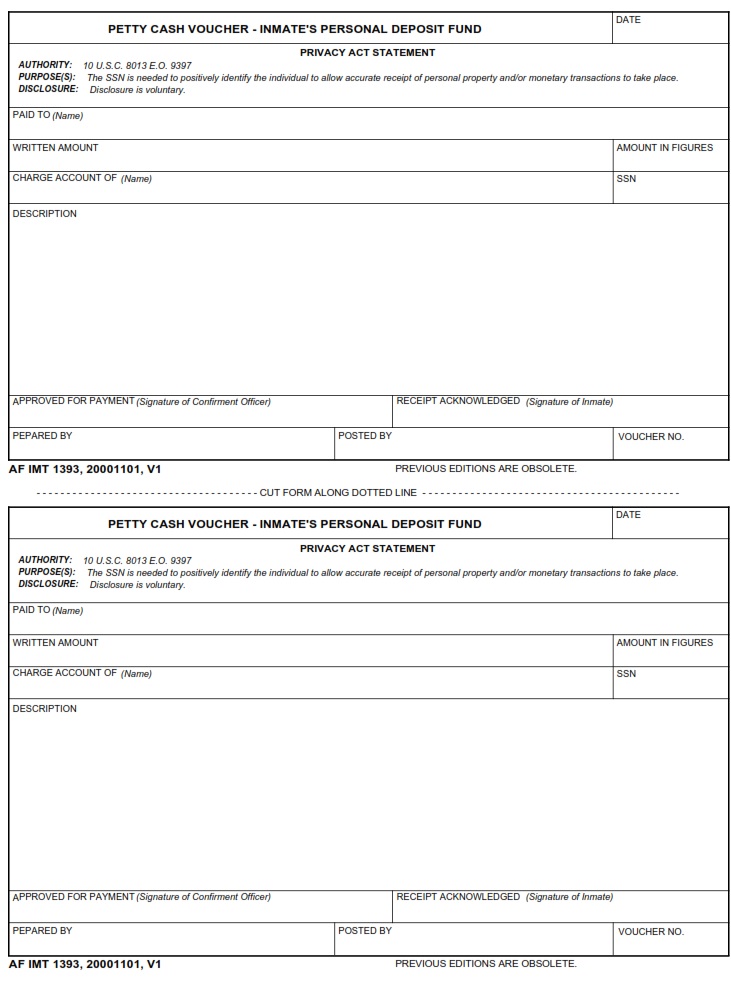AF-FORMS.COM – AF Form 1393 – Deployment Schedule Of Events – Cargo – Are you ready to embark on a journey into the intricate world of military logistics? Imagine a labyrinth of carefully orchestrated movements, where every piece of cargo plays a crucial role in maintaining the efficiency and effectiveness of deployments. In this article, we delve into the depths of AF Form 1393 – Deployment Schedule Of Events – Cargo, uncovering its significance in ensuring the seamless transportation and delivery of vital supplies to military operations around the globe.
As you are about to discover, AF Form 1393 is not just another bureaucratic document; it is a lifeline for military planners and logisticians alike. Through this form, every item of cargo becomes part of a meticulously planned puzzle, with each step intricately detailed to guarantee that nothing is left to chance. From the initial packaging and labeling processes to the final delivery at its destination, this form serves as the blueprint for orchestrating the movement of essential equipment, supplies, and resources critical to mission success. Join us as we unravel the complexities behind AF Form 1393 and gain insight into how it shapes one of the most vital aspects of military deployment operations.
Download AF Form 1393 – Deployment Schedule Of Events – Cargo
| Form Number | AF Form 1393 |
| Form Title | Deployment Schedule Of Events – Cargo |
| Edition Date | 11/1/2000 |
| File Size | 2 MB |
AF-Form-1393-Deployment-Schedule-Of-Events-Cargo.pdf (33 downloads )
What is an AF Form 1393?
The AF Form 1393 is a crucial document used by the United States Air Force to track and schedule deployment events for cargo. It serves as a comprehensive record of the movement and transportation of military equipment, supplies, and other essential items during deployments. This form outlines the specific details of each event, including departure dates, arrival times, transportation modes, and destination locations.
One interesting aspect of the AF Form 1393 is its ability to streamline logistical operations and ensure that all necessary items are delivered to their intended destinations in a timely manner. By meticulously documenting each step of the deployment process, this form helps military personnel coordinate complex logistical strategies with precision and efficiency. Additionally, the detailed information captured on the AF Form 1393 provides valuable insights for future planning, allowing authorities to optimize cargo deployment processes based on historical data analysis.
Where Can I Find an AF Form 1393?
If you’re wondering where to find an AF Form 1393, look no further than the official website of the United States Air Force or through your unit’s administrative or logistics office. This essential document is used to record and track the deployment schedule of events for cargo, ensuring that all logistical details are carefully planned and executed during military operations. With its standardized format and detailed information fields, the AF Form 1393 plays a crucial role in maintaining operational efficiency and readiness.
For those seeking this form, it’s important to note that accessing it may require proper authorization and security clearance due to the sensitive nature of deployment schedules. However, once obtained, the AF Form 1393 serves as a valuable tool for accurately documenting cargo movements throughout various stages of deployment, ultimately supporting mission success and ensuring seamless transportation of vital supplies and equipment.
AF Form 1393 – Deployment Schedule Of Events – Cargo
When it comes to managing the deployment schedule of cargo, precision and attention to detail are critical for mission success. AF Form 1393 serves as a comprehensive tool for documenting the schedule of events related to cargo deployment, ensuring that all vital information is accurately recorded and communicated. This form not only outlines the timeline and key milestones for cargo movement but also facilitates coordination between various entities involved in the process.
One unique aspect of AF Form 1393 is its ability to provide a clear overview of the entire deployment schedule, allowing stakeholders to anticipate any potential bottlenecks or challenges. By incorporating detailed information about cargo types, quantities, and handling procedures, this form offers valuable insights into logistical requirements and resource allocation. Furthermore, utilizing standardized forms like AF Form 1393 enhances consistency and cohesion across different stages of cargo deployment, fostering efficient communication and seamless execution.
In essence, AF Form 1393 plays a crucial role in streamlining the complex process of managing cargo deployment schedules by offering a structured framework that promotes transparency and accountability. Leveraging this tool effectively can lead to improved operational efficiency while minimizing risks associated with logistical disruptions during deployments. Ultimately, recognizing the significance of meticulously documenting scheduled events through forms like AF Form 1393 underscores the military’s commitment to safeguarding mission readiness while ensuring the timely delivery of essential resources.
